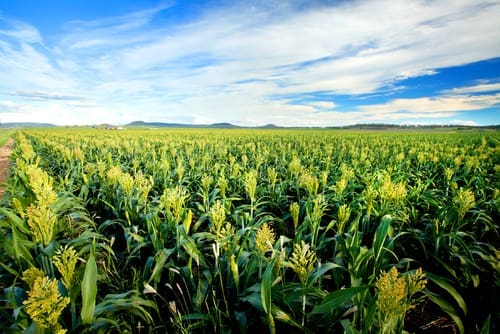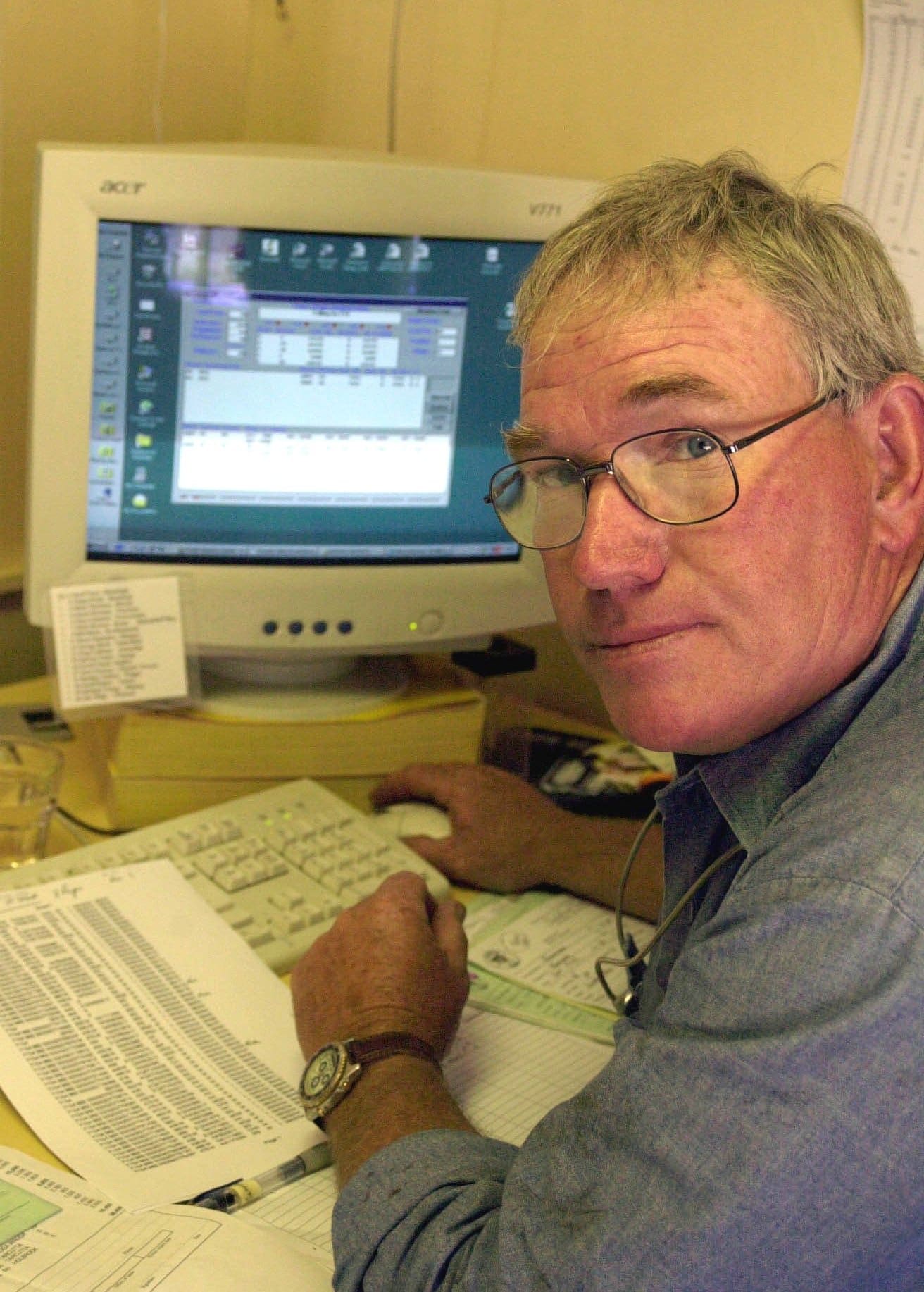A SUBSTANTIAL farming land investment on the Darling Downs by soft commodities giant, Cargill, will be directed heavily towards domestic end-users, particularly feedlot operators, Beef Central has been told.
 The earlier impression given to Beef Central by local downs contacts was that the land investment might be utilised in part for backgrounding of feeder cattle or hay/silage production, but project managers have assured us the investment is a straight ‘grain play’.
The earlier impression given to Beef Central by local downs contacts was that the land investment might be utilised in part for backgrounding of feeder cattle or hay/silage production, but project managers have assured us the investment is a straight ‘grain play’.
Over the past three months Cargill has flown below the radar, picking up about 7000 hectares of prime Eastern Darling Downs farming country so far in a series of acquisitions, much of it on good brigalow/belah soils between Warra, Jandowae, and Dalby. All of the acquisitions to this point have been direct with vendors, with no agency involvement.
The project is being put together under Cargill’s Black River Asset Management investment arm, and has no direct connection with the Teys Australia Cargill joint venture, which operates beef processing and lotfeeding operations in South Australia, NSW and Queensland.
A Black River spokesman said the investment was solely grain-focussed, and built around “buying good value graingrowing country to try to feed the domestic grain market.” The model is based on ownership and direct operation, using local, experienced farm managers.
“The reason we chose the Darling Downs for the first stage of the investment was its proximity to end-users, like feedlots, where we can do direct deals,” he said.
“The project is about developing a low-cost of production model, linking up with local end-users, like feedlots, because that’s where the numbers work. The secret is keeping it out of the system, and retaining control of your grain.”
“We’re very patient, and it’s about buying at the right value,” the spokesman said.
“While ever the value is there, and we can create economies of scale, we will continue to buy, but obviously, over time, we will also be after geographical spread to avoid seasonal variation.”
 Black River ultimately plans to acquire good grain farming country in a band stretching from the Liverpool Plains in NSW, all the way to the current focus area on the Darling Downs.
Black River ultimately plans to acquire good grain farming country in a band stretching from the Liverpool Plains in NSW, all the way to the current focus area on the Darling Downs.
The company stressed that it was not paying ‘over the odds’ for the Downs farming country it had purchased so far, but declined to disclose price information.
Nor would the company offer any guidance as to how much country it ultimately wanted to put under management. The end-point might be dictated more by value, rather than a volume objective, but regardless, it is likely to be ‘substantial.’
While Cargill’s Black River already owns sugarcane growing land in Queensland, the recent Downs acquisitions represent the company’s first venture into grain production in the state.
Its only other grain farming investment in Australia is in farming country at Temora, in southern NSW. That project, however, is under a totally different equity partnership.
During 2011-12, BFB Group bought about 15 grain farms in the Temora district. Black River has a significant stake, said to be worth around $40 million, in the BFP Group. BFB also bought a large Wagga Wagga property, Billabong Station, for about $9 million in 2012.
In contrast, Black River’s more recent Darling Downs investments are under a completely separate fund, called One Tree Agriculture.
Opportunity, price and the need to hedge risk were the reasons offered by the Black River spokesman for the current investment activity.
“We did not expect our growth in the Jandowae region to be so fast, but the opportunity and numbers came forward, in the form of local landowners approaching us,” he said.
“It’s definitely not over-the odds, and a lot of it is buyer’s market. Much of it is about timing.”
Black River has already planted a summer crop on its newly-acquired country, on the back of recent rain.
The spokesman agreed that the recent purchases in the Warra/Jandowae region suggested that the company perceived the property market in the area to represent ‘good value.’
“As I’ve already stressed, we’re not prepared to pay overs for land. It’s fair market price, and has to represent good value.”
Feedlot industry reaction:
Prominent Downs lotfeeder Kev Roberts, a former ALFA president and co-principal of Sandalwood feedlot neat Dalby, was aware of the recent Cargill investment in local graingrowing country, but said he thought it would make little impact on overall feedgrain supply.
“They are doing this for their own strategic financial reasons. But that’s not a bad thing. Black River appears to take a very long-term, strategic investment approach to the business they are in,” Mr Roberts said.
“Will it make a difference to grain supply? I think Cargill is very well attuned to knowing the grain requirements of feedlots, not only in Australia, but in America and all around the world.”
“Will them buying a collection of farms on the Downs make that much difference? I don’t think so. They’re already grain farms, it’s not as if Cargill is pushing virgin scrub to make new farming country.”
“What it does do is it shows that by joining a number of grainfarms together, they can achieve better economies of scale. There’s no question that the 20 percent of really successful grain growers are those that use more inputs than the remaining 80 percent. So from that point, those acres that Cargill (or Black River) has put together may well be more productive than they currently are. But not hugely so.”
Mr Roberts had no issue with the foreign investment factor.
“If we as Australians can’t afford to buy those farms, we shouldn’t be trying to stop others from buying them,” he said.
Who is Black River?
The company’s website describes Black River is a global asset management firm specialising in alternative investment strategies. Formed in 2003, the company is an independently-managed subsidiary of Cargill, a privately held corporation and one of the world’s leading suppliers of food, agricultural and industrial products and services.
Black River offers differentiated sources of alpha to its investors through a range of investment strategies in both developed and emerging markets. The company’s core investment capabilities encompass both public and private markets and include relative value, directional, event-driven, macro and natural resource strategies.
Black River has investment offices in 12 countries worldwide, spanning five continents.
Its global presence and worldwide connectivity with soft commodities giant Cargill provides “broad perspectives that help us identify opportunities and manage risk.”
“We apply these insights to our highly focused strategies built on our core capabilities. Combining broad perspectives with focused strategies, Black River delivers diversified sources of absolute returns to our investors.”

